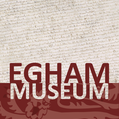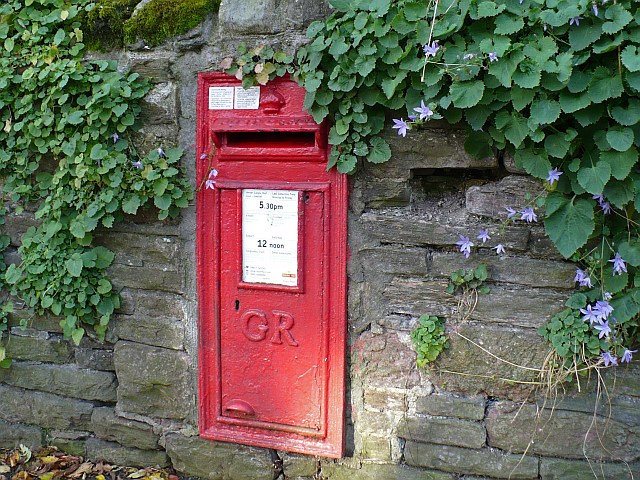The Sensational Trial of William Davis
December 1771 saw the sensational 6-hour trial of William Davis, surgeon and apothecary for robbing the Royal Mail of a postbag containing letters and bills of exchange sent from the Isle of Wight to London.
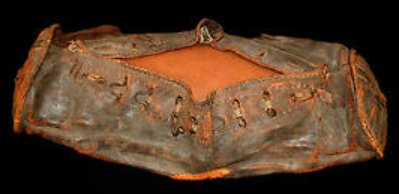
William Davis had lived in Egham from 1760-1766 as a journeyman to surgeon Hugh Stevensen. He then moved to Hatfield Broad Oak, near Chelmsford, to set up as an apothecary. After two to three years he left Hatfield and lived at a series of London addresses before being arrested and accused of robbing the Mail.
Prosecution
- Various witnesses from the Isle of Wight testified that they had posted letters on 21 October, containing bills of exchange[i] endorsed by particular individuals. People who had been expecting such letters declared that they had not received them.
- Post office staff from Newport, Isle of Wight sent the sealed bag of post to Cowes and then Southampton on 21 October 1771. At Southampton Elizabeth Lukeman took out letters for Southampton, and then put the bag in the usual place, an unlocked cupboard. The post-master, Hugh Kello, saw the bag on the 21st of October in the evening but did not notice if it was sealed.
- On 22 October it was delivered to Winchester with seven other bags in a portmanteau[ii], all sealed. They were then carried via Alton and Harford-Bridge to Staines in a locked cart. Thomas Jackson, post-master at Staines received the mail on 23 October, at about 3 a.m. It was then conveyed in his open cart to Hounslow by Thomas Martin. There were no letters for Staines so no bags were removed.
- Thomas Martin said that William Davis approached him and asked to travel in the cart to Hounslow. He recognised him as a man who had travelled with him in this way six times before. “As he was going over Hounslow-Heath, he said he was mortal sleepy. He had sat by the side of me till then. Then he laid down a-top of the Altham mail … He lay there till I came to Hounslow; then he gave me a shilling, and said it would be the last time he should come, for they were cold nights. He went away, and I saw him no more. I delivered the mail to John Broadwood …About half after four o’clock.”
- John Brotherhood the post-boy at Hounslow remembered Martin coming to Hounslow with the mail-cart, between 5 and 6 a.m. Davis, whom he had never met before, accompanied him as far as Knightsbridge. Brotherhood went on to the general post-office in Lombard Street between 7 and 8 a.m. to deliver the mail.
- William Skuse, assistant for the West Road, received the mail from Hounslow on 23 October at about 8 a.m. The Isle of Wight bag was missing.
- Witnesses came forward to testify that William Davis had from 24 October given them bills of exchange to cash. One of them recognised him as having formerly been an apprentice to one Mr. Williams in the Minories.
- John Andrews, post-master at Maidenhead, said that the prisoner visited him on Saturday 26 October and asked him to look after any letters which were left in the name of Jarvis. He stayed with Andrews that night and he wrote some letters in the morning, borrowing a seal. “He went away from my house the next morning on foot, and when my coachman came down from London, he told me, that Mr. Jarvis desired me to send by him any letters that might he left at my house for him; I gave him the letters directed for Mr. Jarvis.” John Rymell the coachman confirmed this saying that he met ‘Mr Jarvis’ a few times in the cellar of the White Horse.
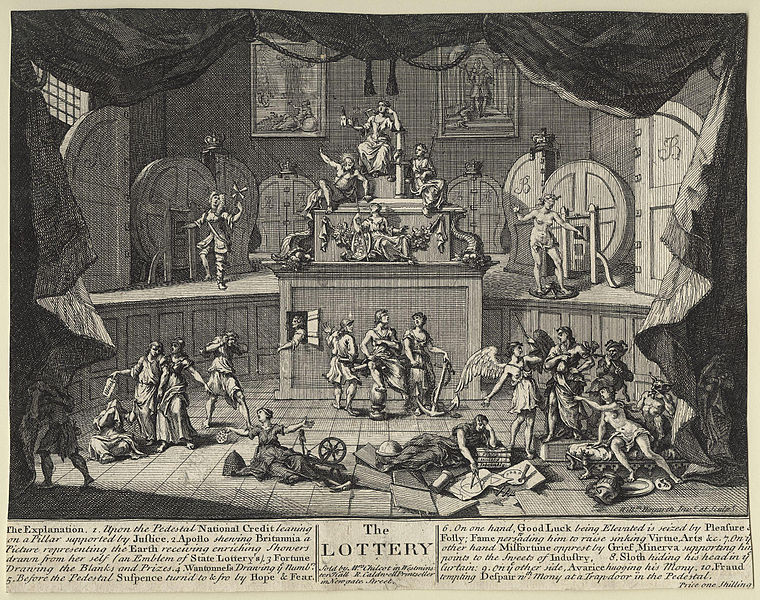
- Abel Gray and William Golightly, state lottery officers, testified that they had each received letters, bearing Mr Andrews’ seal, containing bills of exchange endorsed by Richard Jarvis and asking them to send lottery tickets to Jarvis at Maidenhead. Gray did so, but Golightly, suspecting something amiss, replied “that it was not usual to send away tickets till the bills we received were paid.” The bills involved were subsequently identified as having been part of the Isle of Wight post bag but none of them had originally been endorsed in the name of Jarvis.
- James Stracey received a similar letter and he sent a ticket, No. 37,712, and a banker’s note for £10 payable to Richard Jarvis. However, the bill had no endorsement so it was returned to him by the bank. He identified the prisoner as a man he had met at Nicholas Lane coffee house – “He was dressed different; I do believe it was him.” He had apologised to him that the note could not be paid and the prisoner “said he had received it of Mr. Jarvis at Maidenhead.” He then endorsed it using the name John Pugh from Chelmsford, Essex. When Davis was arrested John Commings, from the secretary’s office at the post-office, went to search his lodgings at Mr. Hudson’s in Bush Lane. “I found there that bill of exchange for £10 and 11 shillings on Eade and Wilton, and this lottery ticket, number 37,712.”
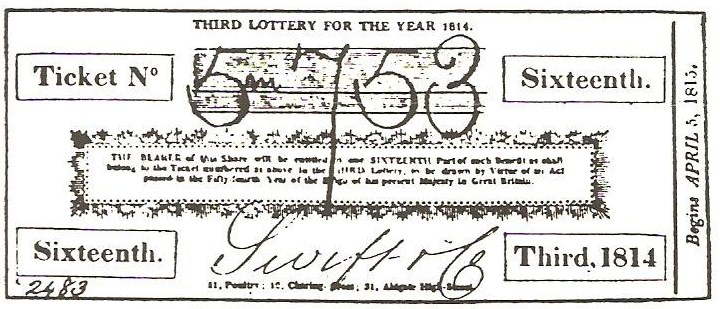
Defence
William Davis was not able to speak for himself as would have been the normal procedure in 1771: “I would very gladly say a great deal in my defence, but my illness renders me entirely incapable; therefore I must submit the circumstances of my defence to my council.”
In felony cases such as this, defence lawyers were permitted to be present only by the agreement of the judge but were not allowed to address the jury. In a unique change of policy for this case[iii], the judge said, that as the prisoner was ill, he would permit his counsel to state his defence to the jury. “Upon which the council for the prisoner pointed out errors in several of the counts in the indictment; and the court allowed that those errors would be fatal to those counts, but as the evidence proves five of the counts in which no flaw could be found, the objections could not avail the prisoner.”
One such error was that Thomas Martin who drove the mail from Staines to Hounslow, had apparently initially identified another man, William Greenville Hoare as the man he had driven. Martin now claimed that he recognised Davis as soon as he saw him at Newgate and denied that it was only after someone else had mentioned his name.
The rest of the defence case relied on presenting character witnesses, including:
- Hugh Stevensen, a surgeon in Egham for whom Davis had worked.
- Robert Packer an attorney in Egham.
- Rev. William Jones, vicar of Egham, headmaster of Strode’s.
- Dr Benjamin Pugh, a physician in Chelmsford, who testified that Davis was working as an apothecary at Hatfield Broad Oak three years previously. He said that Davis had a wife and two children but did not know where he had been for the past two years after leaving Hatfield Broad Oak.[iv]
- Morris Pugh, a surgeon and apothecary in Chelmsford.
- Mr. Griffinough, a surgeon and apothecary in Chelmsford with whom Davis had lived for two years before he went to Mr. Stevensen.
- Richard Butler, a painter at Egham.
- Mr Williams, a farmer in Egham.
- George Scott, a shoe-maker from Great Tower Street, who had known him since 1768, when he first went to Broad Oak but had not seen him since he came to London.
- Benjamin Hawkins, from Dowgate Hill with whom Davis lived for six weeks when he came to London; they remained acquainted when Davis moved to Mr. Hudson’s on 4 May 1771.
- William Hudson, wine trader of Bush Lane with whom Davis had lodged six to seven months.
- William Stone of Cheapside who had known Mr. Davis for a year. Since his office was very near Mr. Hudson’s house he had often seen him especially since the family went to the country.
They all described him as a sober, honest, diligent, well-respected and trustworthy man, of whom everyone spoke highly.
Why would a highly regarded surgeon apothecary turn to robbing the post? Was William Davis guilty? Find out the verdict here.
By Margaret C Stewart
[i] A bill of exchange was a written order to a person requiring them to make a specified payment to the signatory or to a named payee, not dissimilar to a cheque.
[ii] Portmanteaux (containing 2 leather bags lined with cotton) had been in use since 1635 for carrying mail in sealed bags.
[iii] Gallanis, T.P. (2006) The Mystery of Old Bailey Counsel. The Cambridge Law Journal Vol. 65, No. 1 (Mar., 2006), pp. 159-173
https://www.jstor.org/stable/4509178?seq=1#page_scan_tab_contents [Accessed 7 October 2019]
[iv] Pugh is well known in the history of Chelmsford as a pioneer in midwifery and mass inoculation against smallpox. https://www.yourcommunityhub.co.uk/Have-you-spotted-Chelmsfords-newest-Blue-Plaque.php [Accessed 7 October 2019]
